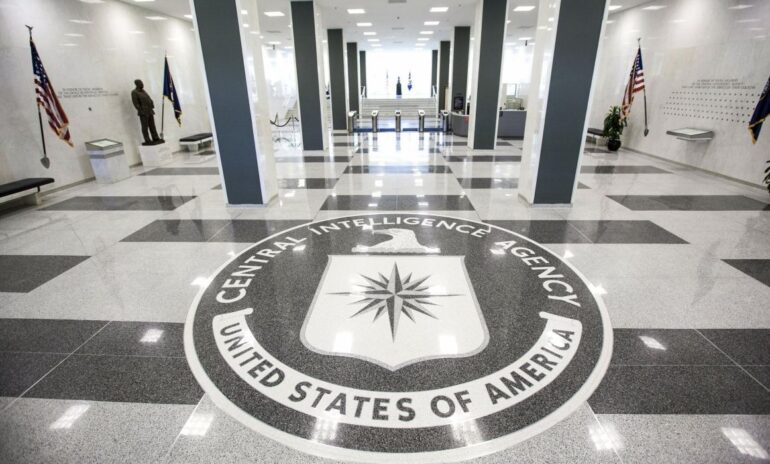TL;DR:
- CIA and US intelligence agencies are developing an AI chatbot akin to ChatGPT.
- The program will utilize publicly available data and provide sources for validation.
- The aim is to enhance information processing capabilities and navigate the data deluge effectively.
- Privacy concerns loom over the definition of “public data” and data safeguards.
- The chatbot will empower agents to access, query, and summarize vast datasets.
- Details about the AI foundation remain undisclosed, and public access is restricted.
- Stringent adherence to US privacy laws is emphasized.
- The move may be influenced by China’s AI ambitions.
- The US government is actively countering AI risks and promoting ethical AI development.
Main AI News:
Central Intelligence Agency (CIA) and other key US intelligence agencies are on the verge of deploying their very own AI chatbot, akin to the renowned ChatGPT. Unveiled recently by Bloomberg, this groundbreaking program is poised to revolutionize the intelligence sector by harnessing the power of publicly accessible data. More significantly, it will accompany its responses with a comprehensive list of sources, allowing operatives to validate the information’s authenticity—an imperative in today’s data-rich environment.
The objective behind this initiative is crystal clear: to equip US intelligence operatives with a formidable tool that can effectively navigate the burgeoning sea of information. Nevertheless, the classification of what precisely constitutes “public data” may potentially give rise to intricate privacy concerns, underscoring the need for a nuanced approach.
Randy Nixon, Director of Open Source Enterprise at the CIA, remarked on the agency’s ongoing journey through the realms of information acquisition. “We’ve traversed from newspapers and radio to newspapers and television, to newspapers and cable television, evolving further into the era of basic internet and big data,” Nixon explained in an exclusive interview with Bloomberg. “And the journey continues. We now find ourselves in a constant pursuit of needles in an ever-expanding haystack.“
Nixon’s division is poised to disseminate this cutting-edge AI tool to various US intelligence agencies in the near future. The implications are substantial, as this tool promises to empower agents to not only access critical information but also pose follow-up queries and distill vast datasets into concise summaries. “Moreover,” Nixon elaborated, “it will enable us to engage in interactive dialogues with machines, thereby expanding our data repository limitlessly, with the only constraint being financial resources.“
The specific AI foundation upon which the CIA’s chatbot is built remains shrouded in secrecy. Once deployed, this innovative resource will be accessible to the entire 18-agency US intelligence community. However, it will remain off-limits to lawmakers and the general public.
Nixon affirmed that stringent adherence to US privacy laws is a non-negotiable facet of the program’s operation. Yet, he refrained from elucidating on the mechanisms that would safeguard the tool against unauthorized leaks or the utilization of dubiously acquired “public” data. Recent instances have revealed federal agencies and law enforcement entities bypassing warrants and procuring extensive datasets from commercial sources, including sensitive phone location data categorized as open-source information.
“The sheer scale of our data collection efforts, spanning over the past eight decades, has grown to astronomical proportions,” Nixon acknowledged. “To a point where it can become overwhelming and practically unusable for our stakeholders. This tool envisions a future where machines proactively deliver precise information, a future where machines proficiently summarize and categorize data.”
The decision by the US government to forge ahead with this transformative tool is potentially influenced by China’s ambitious aspirations to lead the global AI landscape by 2030. The US, cognizant of both domestic and economic AI risks, has adopted measures to counter China’s ascendancy. These include the initiation of a Blueprint for an AI Bill of Rights during the previous year, delineating the White House’s foundational AI principles. Furthermore, substantial investments, such as the allocation of $140 million to establish novel AI and machine learning research institutes, underscore the nation’s commitment to technological leadership.
In a pivotal meeting held in July, President Biden convened with leaders from prominent AI companies, culminating in non-binding commitments to the ethical development of AI products. This concerted effort serves as a testament to the US government’s dedication to ensuring that AI technologies remain aligned with societal values and principles.
Conclusion:
The introduction of the CIA’s AI chatbot signifies a major advancement in intelligence operations. This development addresses the need for efficient data processing and retrieval, but it also raises important privacy and ethical considerations. It underscores the growing role of AI in the intelligence landscape and its potential impact on the broader market for AI solutions, particularly in government and security sectors.

